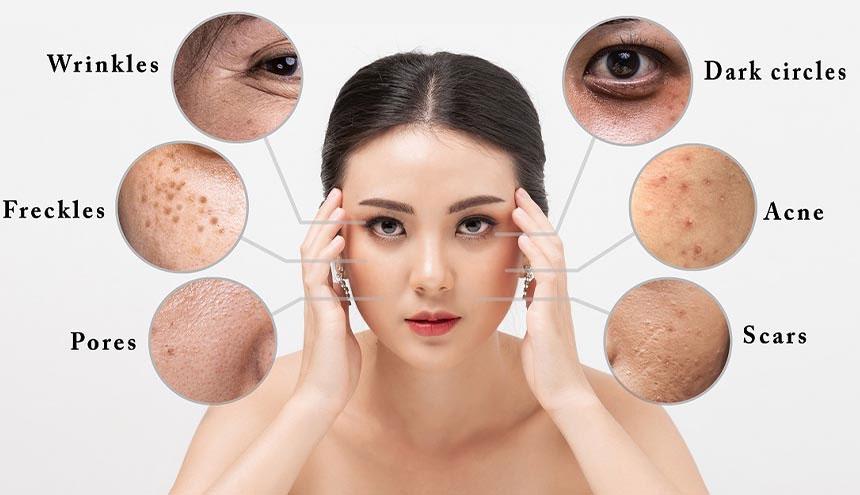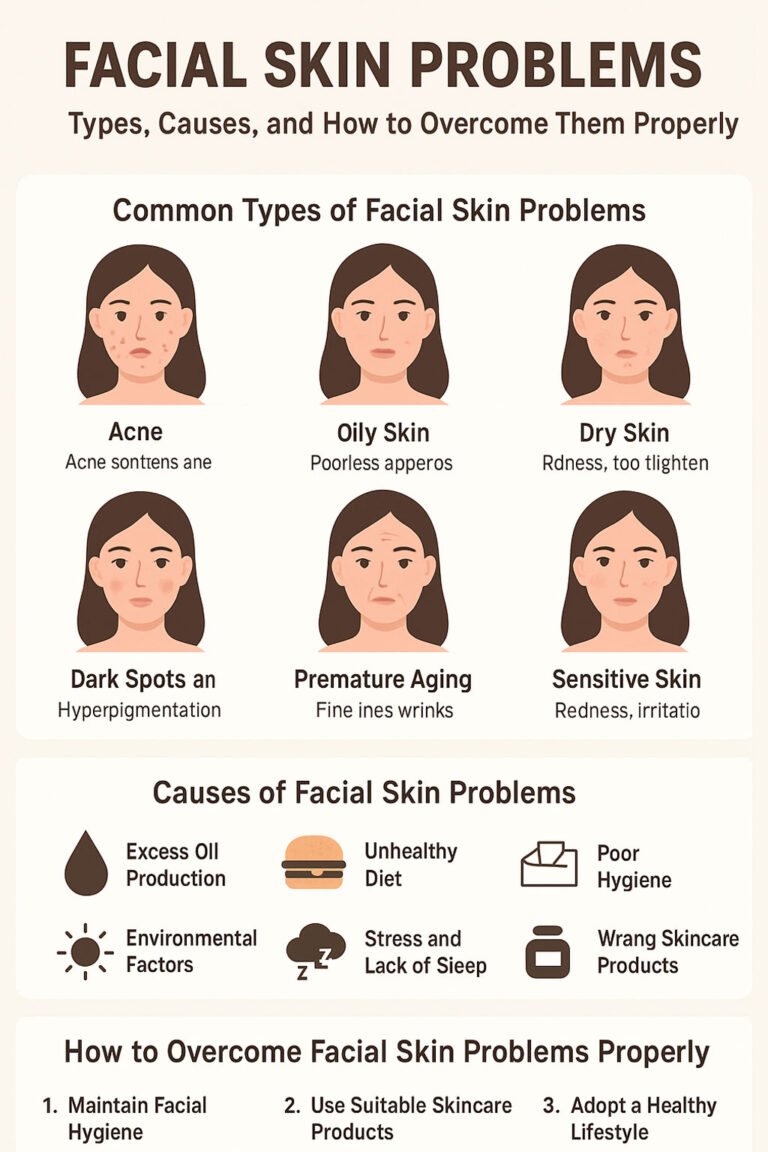Pixie Forever – Everyone dreams of having healthy, clean, and radiant skin. However, many people experience Facial Skin Problems, which affect confidence and comfort in daily activities. These issues can be triggered by various factors such as lifestyle, environment, and even genetics. To better understand, let’s explore the types, causes, and proper solutions for these conditions.
Common Types of Facial Skin Problems
Facial skin is sensitive and easily affected by internal and external factors. Below are some of the most common skin problems people encounter:
- Acne
Acne is one of the most widespread issues, characterized by blackheads, papules, pustules, and sometimes nodules. It occurs due to excess oil production, clogged pores, and bacterial growth. - Oily Skin
This condition happens when sebaceous glands produce too much sebum, making the skin look shiny, with enlarged pores, and more prone to breakouts. - Dry Skin
Tightness, flakiness, and itchiness often indicate dry skin. It may be caused by a lack of natural moisture or external factors like cold weather. - Dark Spots and Hyperpigmentation
Uneven skin tone or dark patches usually result from prolonged sun exposure, acne scars, or hormonal changes. - Premature Aging
The appearance of fine lines, wrinkles, and sagging skin are early signs of aging, often caused by unhealthy habits or free radical damage. - Sensitive Skin
People with sensitive skin often experience redness, irritation, or stinging when exposed to certain products. This is due to a weakened skin barrier.

Causes of Facial Skin Problems
Several factors contribute to facial skin problems. Some of the most common include:
- Excess Oil Production
Hormonal imbalance, particularly during puberty, increases oil production and leads to breakouts. - Unhealthy Diet
Consuming too much sugar, fried, or processed foods can worsen skin conditions. - Poor Hygiene
Dirt, pollution, and leftover makeup clog pores if not cleaned properly. - Environmental Factors
UV exposure, pollution, and extreme weather often damage the skin. - Stress and Lack of Sleep
Stress increases cortisol, which triggers acne, while lack of rest disrupts skin cell regeneration. - Wrong Skincare Products
Using products unsuitable for one’s skin type often causes irritation and worsens conditions.
Read More : “Biodiesel Dispute: Indonesia Wins Lawsuit at the WTO“
How to Overcome Facial Skin Problems Properly
Maintaining skin health requires proper care depending on the condition. Here are effective ways to handle it:
- Maintain Facial Hygiene
Wash your face twice daily using a gentle cleanser that matches your skin type to prevent buildup of dirt and oil. - Use Suitable Skincare Products
Choose products with active ingredients such as salicylic acid for acne, hyaluronic acid for hydration, or niacinamide for brightening. - Adopt a Healthy Lifestyle
Eat nutritious foods, drink enough water, and exercise regularly to improve skin health from within. - Protect Your Skin from Sun Exposure
Always wear sunscreen with at least SPF 30, even indoors, to protect against harmful UV rays. - Reduce Stress and Get Enough Rest
Sleeping 7–8 hours daily helps skin regenerate naturally, while stress management prevents flare-ups. - Consult a Dermatologist
If conditions persist, seek professional help for treatments like topical medications, chemical peels, or laser therapy.
Home Remedies to Support Healthy Skin
In addition to medical treatments, natural remedies can help reduce the risk of Facial Skin Problems:
- Apply natural masks made from honey, aloe vera, or oatmeal to soothe and nourish the skin.
- Perform light exfoliation once a week to remove dead skin cells.
- Use natural oils like jojoba oil or tea tree oil to help treat acne.
- Apply cold compresses to calm redness or irritation.
Psychological Impact of Facial Skin Problems
Skin problems not only affect appearance but also mental health. Many individuals lose confidence when facing severe acne, dark spots, or early aging signs. That’s why skincare is more than aesthetics; it is also about maintaining emotional well-being. A healthy skin routine can positively impact self-esteem and overall lifestyle.



